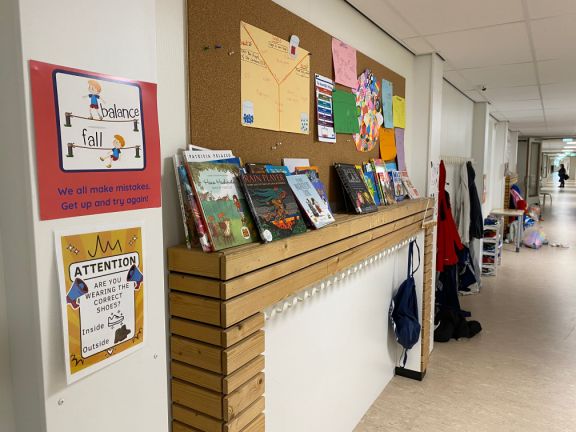By Josie Galemmo, whole school ATL's coordinator
What is a growth mindset? It’s a concept that makes a difference in how our children tackle challenges, learn new things, and bounce back from setbacks. Imagine your child facing a tricky math problem. With a growth mindset, they see it as a fun puzzle to solve rather than a dead end. It’s all about believing that abilities and intelligence can be developed through dedication and hard work.
Neuroplasticity
The concept of a growth mindset is based on the research of neuroplasticity, which is the brain's ability to change and adapt throughout one’s life. It means that the brain can reorganise itself by forming new connections between brain cells (neurons), especially when learning new things, having new experiences, or recovering from injury.
Rewire
Think of the brain like a muscle—just as exercising makes muscles stronger, using certain parts of the brain strengthens those areas, and the brain can "rewire" itself to improve how it works. For example, if one part of the brain is damaged, other parts may take over the lost function through this process.
And remember, if you don’t exercise a muscle, it will become weaker. The brain responses in the same way. If it‘s not challenged the connections between neurons will become weaker.
Making mistakes
Therefore, it is important for children to have a growth mindset, which allows them to accept challenges and be free to make mistakes; so, they can learn from those mistakes and their brains can grow.

What you can do at home
Here are some ideas:
1. Celebrate Effort Over Results: When your child tries hard, even if they don’t achieve it the first time, celebrate that effort! Say things like, “Wow, you worked so hard on that! I’m proud of you!” This reinforces the idea that effort leads to growth.
2. Encourage Questions: Foster curiosity! If they’re curious about something, encourage them to ask questions. This promotes a love for learning and shows that it’s okay not to know everything right away.
3. Model Resilience: Show them how you tackle challenges! Share stories of times you faced something tough, and how you learned from the mistakes you made.
4. Use Positive Language: Swap out “I can’t do this” with “I can’t do this yet.” This tiny tweak can open up a world of possibilities and encourage a “let’s keep trying” attitude.
5. Create a Safe Space for Mistakes: Let your child know that mistakes are part of learning. Maybe turn it into a fun family game: “What’s the funniest mistake we made today?” Laughter helps take the pressure off!
Remember, nurturing a growth mindset is a journey, not a sprint. It’s all about fostering a love for learning and resilience. So, let’s cheer on our little learners as they tackle challenges like the superheroes they are! Keep the fun and encouragement coming, and watch them soar!